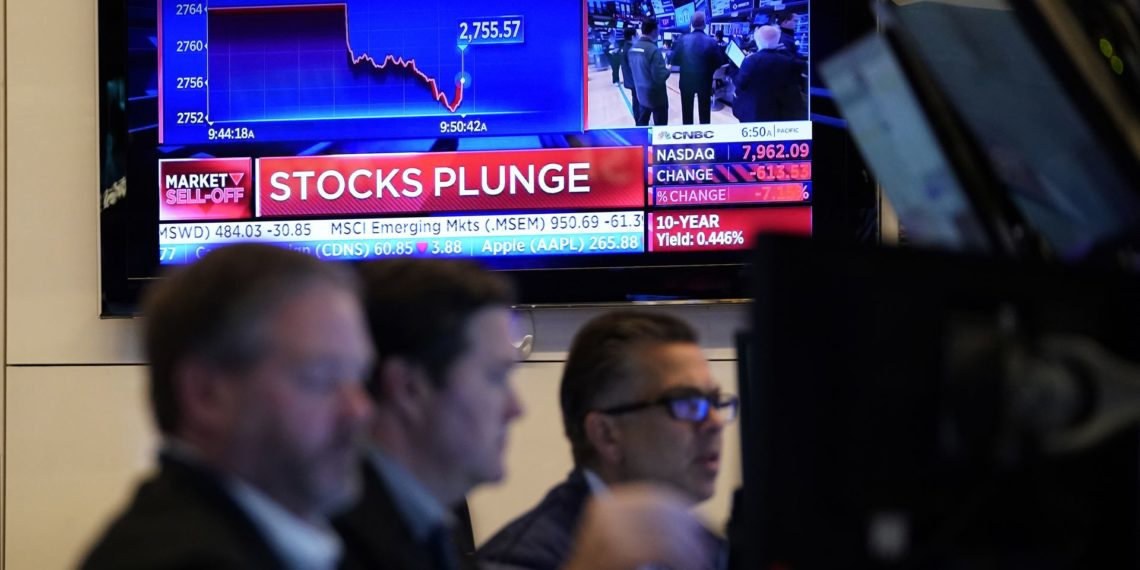The impact of the coronavirus on the U.S. economy is poised to be significant. With so many American-based multinationals reliant on China for manufacturing, the impact on the U.S. began when China’s containment efforts included shutting down businesses there, which caused disruptions in these firms’ supply chain.
This impact on the American economy grows now, with the virus spreading in the United States. The extent and the severity of the virus here is still unknown, which results in employers responding rationally to the coronavirus “with an abundance of caution.”
This response includes recommendations for employees to stay home while sick (which will presumably be more frequent with the spread of the virus) and to limit travel, all of which will likely result in a reduction in workplace productivity.
Growing Economic Threat
Relatedly, consumers are in some cases afraid to (or in some areas are asked not to) go out to buy items or to attend public gatherings, which affects aggregate demand. With Spring Break fast approaching, this is especially impactful for the travel and tourism industries.
Collectively, disruptions in supply, demand, and firm productivity from the coronavirus are sure to have an impact on the U.S. economy. This fact is not lost on Jerome Powell, the Chairman of the Federal Reserve Board, who in an unscheduled meeting on March 3 acted to reduce interest rates by 50 basis points.
It is noteworthy that this was the first “emergency” meeting of the Federal Reserve Board and the biggest interest rate reduction since the Great Recession. Not only was the Fed’s response telling, but also that of stock markets: in the hours after this emergency rate cut, the market shrugged and continued to drop in value, ending the day with most major U.S. stock indices 2 to 3 percent lower. Monday, March 9, the S&P 500 Index fell 7 percent, triggering an automatic circuit to quell, at least temporarily, the free fall.
Government Response to Coronavirus
To respond to this growing economic threat, Congress has approved $8.3 billion to fight the coronavirus. This funding will financially support research in finding a vaccine and assistance in state and federal government responses to the virus.
President Donald Trump is proposing additional measures including a payroll tax cut (such as taxes associated with Social Security and Medicare), assistance to industries hit particularly hard by the virus, and assistance to hourly workers who may become ill, which would result in them being unable to work.
I am fully prepared to use the full power of the Federal Government to deal with our current challenge of the CoronaVirus!
— Donald J. Trump (@realDonaldTrump) March 11, 2020
As of the writing of this article, however, there is no agreement on how to proceed, and some Congressional members believe the assistance needs to be much more measured and specific, helping only those that will be hit especially hard by the virus versus a broad, sweeping approach.
Impending Recession?
Collectively, the impact of the coronavirus is large and still growing. Economists initially anticipated a one-quarter economic impact of the pandemic, but now some are revising those estimates, suggesting that the impact may well be longer.
Making matters somewhat more precarious, corporations are sitting on a mountain of debt – about $10 trillion – largely due to historically low interest rates, which have been available for an extended time. This is important because it means that potential disruptions to supply and demand could impact their ability to service debt. Firms that cannot pay their debt obligations may need to lay off employees to meet those payments (this also follows, by the way, from a reduction in consumer demand).
In the end, the U.S. government’s response to the coronavirus may not be able to thwart off a recession. This written, if a recession happens, it needn’t be long or extremely painful, as with the Great Recession. It isn’t time to panic. We will all get through this – together.
Disclaimer: The views and opinions expressed here are those of the author and do not necessarily reflect the editorial position of The Globe Post.























